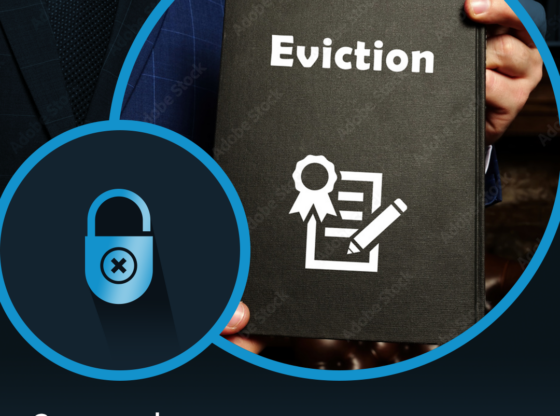Right to Rent penalties
The UK has in place a framework of laws, policies and administrative arrangements to ensure access to work, benefits and services is only available to those who are lawfully present in the UK and have the right to access them. In relation to letting property, these are known as the Right to Rent, and there are Right to Rent Penalties for landlords or agents that do not comply.
The Right to Work and Right to Rent Schemes (“the Schemes”) were introduced as part of these measures to ensure only those who are legally entitled to work in the UK can access employment and to prevent illegal migrants and overstayers from accessing the private rental sector. The measures aim to tackle and deter illegal immigration, to secure compliance with and help to enforce UK immigration laws and to support efforts to tackle those who exploit vulnerable migrants.
Employers and landlords (including letting agents) can obtain a statutory excuse (defence) against liability for a civil penalty by carrying out prescribed checks before employing someone or entering into a tenancy agreement. The Schemes provide for civil and criminal sanctions for non-compliance if an employer is found to have employed an adult subject to immigration control who is disqualified from working by reason of their immigration status, or a landlord is found to have authorised an adult to occupy premises in England who is disqualified from renting by reason of their immigration status, without a statutory excuse.
The current level of penalty is calculated using a sliding scale based on compliance. For Right to Work, the penalty aims to incentivise prior reporting of illegal workers and co-operation with enforcement activity to determine liability. The current civil penalty levels were set in 2014 as follows:
Employers
- First Breach: £45,000 (per worker)
- Repeat Breach (within 3 years) £60,000 (per worker)
Landlords
- First Breach: £5,000 (per lodger) / £10,000 (per occupier)
- Repeat Breach (within three years): £10,000 (per lodger) / £20,000 (per occupier)
Summary of changes
The value of the maximum civil penalty issued to non-compliant employers and private rental sector landlords (including letting agents) as part of the Schemes is being increased. The proposed uplifts, which require secondary legislation subject to the affirmative procedure, would take effect in January 2024.
The civil penalty for employers is to be raised to £45,000 per illegal worker for a first breach and £60,000 per illegal worker for repeat breaches.
For landlords (including letting agents) the civil penalty is to be raised to £5,000 per lodger and £10,000 per occupier for a first breach, with repeat breaches set at £10,000 per lodger and £20,000 per occupier.
As is the case now, the maximum penalty will only be levied on an employer or landlord (including letting agents) who has breached the Schemes on more than one occasion.
The Civil Penalties are being increased with the:
Aim to change the behaviour of the non-compliant employer/landlord/letting agent.
Aim to eliminate any financial gain or benefit from non-compliance.
Be proportionate to the nature of the offence and the harm caused.
Aim to restore the harm caused by regulatory non-compliance and
Aim to deter future non-compliance.
Be responsive and consider what is appropriate for the particular offender and regulatory issue, which can include punishment and the public stigma that should be associated with a criminal conviction.
The new maximum level of penalty further strengthens enforcement of the right to work and the right to rent in the UK by making the sanctions more punitive whilst acting as a deterrent to those who would seek to undermine the UK’s immigration laws or provide the means for migrants to remain in the UK unlawfully. This supports wider Government activity to tackle illegal migration and unscrupulous employers and landlords (including letting agents). That is in the interests of a prosperous and fair society, which supports those who play by the rules and protects those who would otherwise be exploited.











